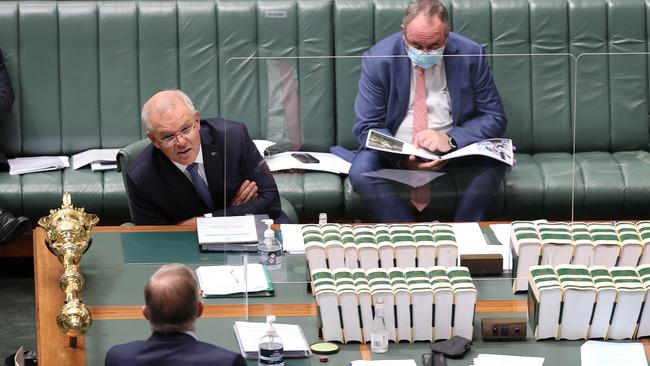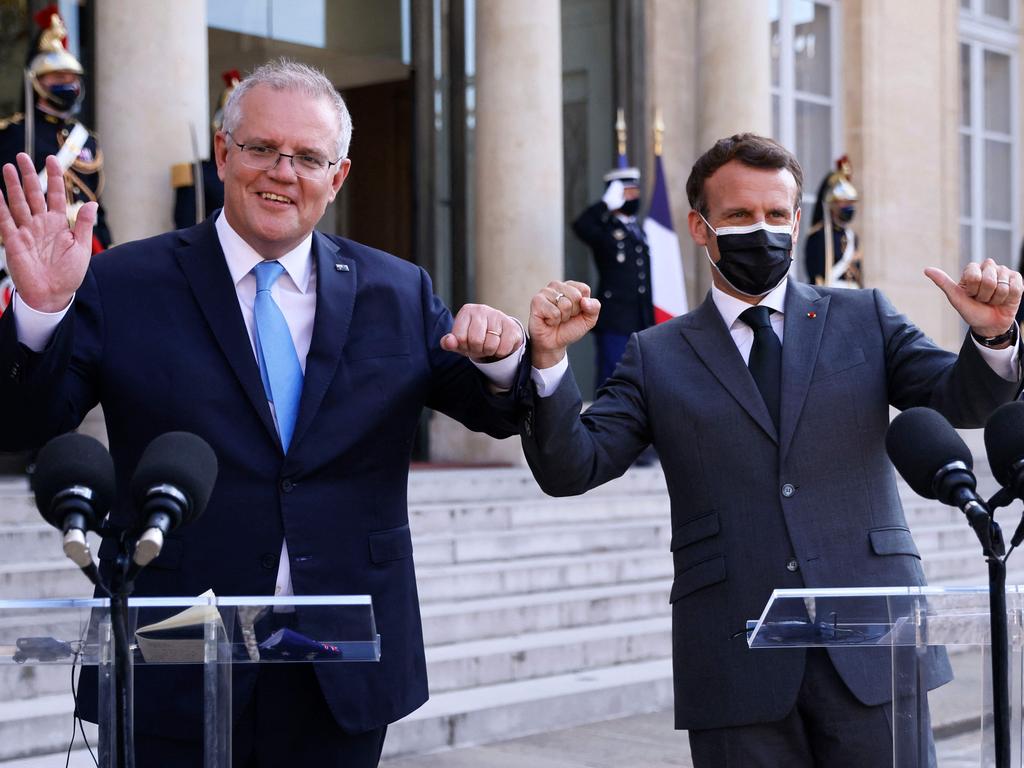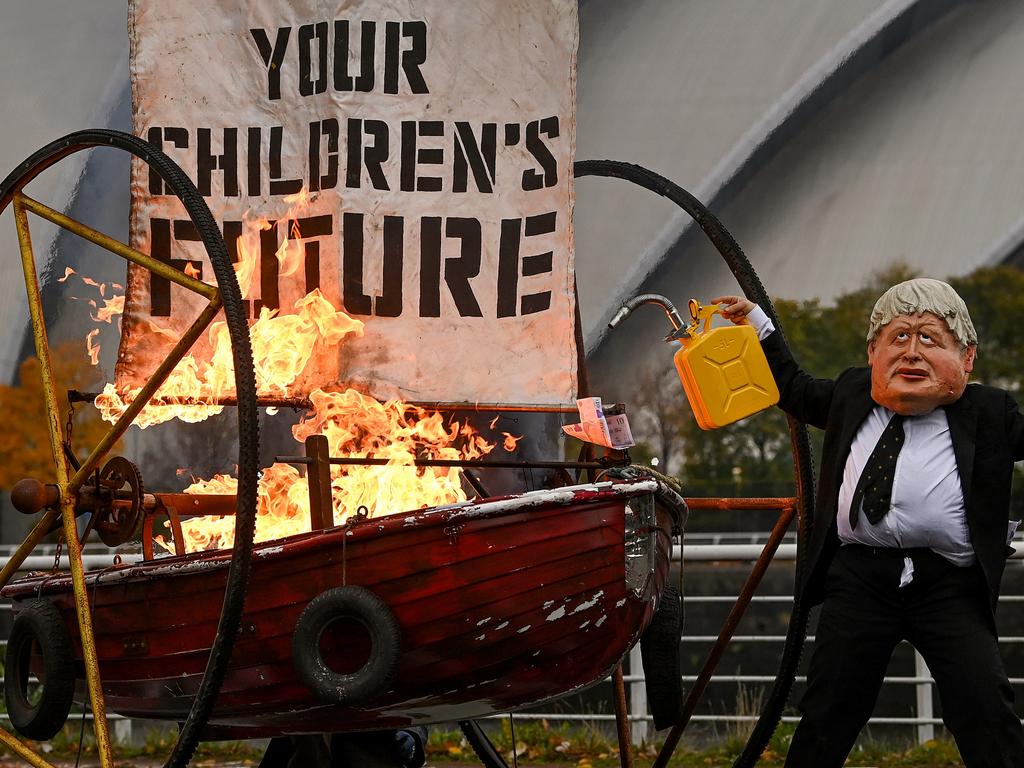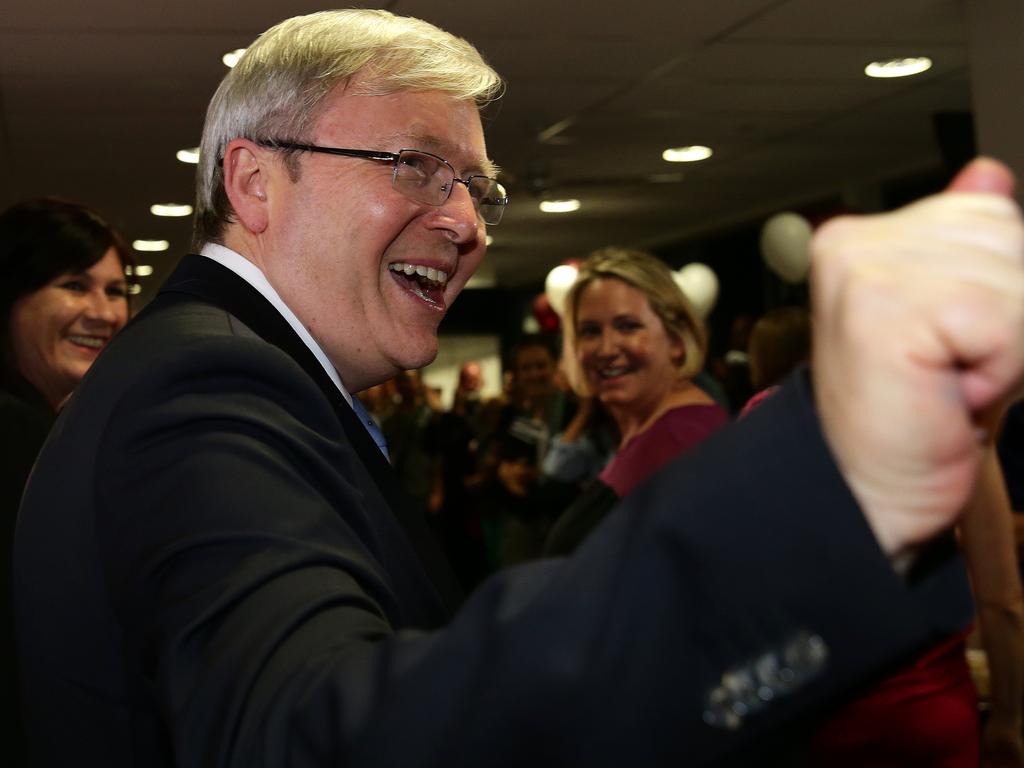Miracle poll win unlikely but not beyond Morrison
Covid and climate change have made the job of predicting voters’ intentions all but impossible.

But, facing the same odds, polls and predictions, Morrison can win because the Covid-19 pandemic has introduced new complications and attitudes within the electorate which make political forecasts even more unpredictable and normal assumptions redundant.
The pandemic has altered people’s priorities; the political power balance between state and federal leaders has changed; job protection has become paramount; there is a craving for economic security; and there is an element of political hysteria and hyperbole and fracture as parties appeal to fear and panic.
There is also a looming and unknown threat from numerous events: the outbreak of a new virus strain, failure of the vaccine, global security tensions, trade wars, transport disruption and shortages of power and food.
The accepted norms for predicting election outcomes based on economic management, employment, taxes, budget deficits and national debts are all unreliable and break down national approaches even further into region-by-region and electorate-by-electorate campaigns in the next election.
The next election is shaping as a contest between two sides not arguing for people to vote for them but to vote against their opponent in an atmosphere where voters are turned off from politics.
Of course, Morrison does face an almost impossible task to win the 2022 election: he has to win two to three seats just to hold government, he’s lost his early popularity, the Coalition is divided, Liberal support is as low as it has been for years, Anthony Albanese is not adopting a vast tax-and-spend agenda and, as Morrison flies to the Glasgow climate change talks, he has just given discontented Coalition voters a real reason to vote for someone else.
The pandemic has brought the reality of the global summit in Glasgow to the kitchen table, which includes the visceral reaction to an ancillary UN climate change agenda to promote “Meatless Mondays” and more plant-based diets to reduce beef production.
There has been growing disenchantment within the Liberal Party’s base for some time, and voters looking for an excuse not to vote Liberal or National can use the commitment to net-zero carbon emissions by 2050 as that excuse.
Once again, conservative independents and minor parties are reaping the benefit of disaffection with the Coalition and Morrison, particularly in Queensland and regional NSW, with the latest Newspoll showing One Nation and others, which includes Clive Palmer’s United Australia Party, with 16 per cent primary voter support – that’s higher than it was at the 2019 federal election.
On the other side, there is the danger that Liberal supporters wanting more action on climate change will see the Coalition’s commitment as cynical and duplicitous and Morrison could lose votes at both ends of the climate change spectrum.
Of course, Morrison faced an almost impossible task to win the 2019 election and he did. But, the biggest danger for Morrison next year is to think he can repeat the miracle 2019 victory by reliving that campaign attacking Bill Shorten’s new taxes, billion-dollar-a-day spending announcements and an uncosted carbon emissions reduction policy.
Morrison and Barnaby Joyce have already started a scare campaign directed against Labor’s commitment to a legislated 2050 net-zero emissions target and rolling out investment plans to protect rural and regional jobs.
Morrison is banking on the recent months of disunity over carbon emissions policy to morph into an economic argument in rural and regional Australia where he is offering to spend money to protect jobs. The problem with offering offsets and compensation for carbon costs, as Julia Gillard found out, is that the more you talk about compensation the more people fear the cost.
Josh Frydenberg also relentlessly presses the economic aspect of handling the coronavirus as the Coalition expects to avoid a double pandemic recession and be able to point to a December quarter of unexpected economic resurgence as the nation prepares to go to the polls.
The biggest danger for Albanese as Opposition Leader is to think that Morrison can’t win.
Albanese has to avoid thinking Labor can’t lose based on the opinion polls, as Shorten did in 2019, and all he has to do is reverse Labor’s 2019 strategy on $380bn in new taxes to win.
Labor has moved to dump or neutralise all the contentious economic policies of 2019 and gone as far as backing the third tranche of personal income tax cuts.
Labor has to be wary of just sitting back and taking advantage of the Coalition division on carbon emissions, losing momentum and heading into next year with not just a small-target strategy but also a totally negative strategy.
Kim Beazley, who was a far more popular Labor leader than both Shorten and Albanese, was caught short when his negative campaign on rolling back the GST was not enough to counter John Howard’s aggressive border protection policies.
Morrison’s public appeal tends to rest on a patient competency and a dogged determination to deliver despite personal attacks.
Albanese’s strategy has been to question that competency and criticise Morrison for being a spin merchant without substance.








Scott Morrison can win the next election. If he does, it will be third miracle Coalition victory in a row after Malcolm Turnbull’s near-death 2017 electoral failure and the Prime Minister’s own win over Bill Shorten in 2019 against all the odds, polls and predictions.